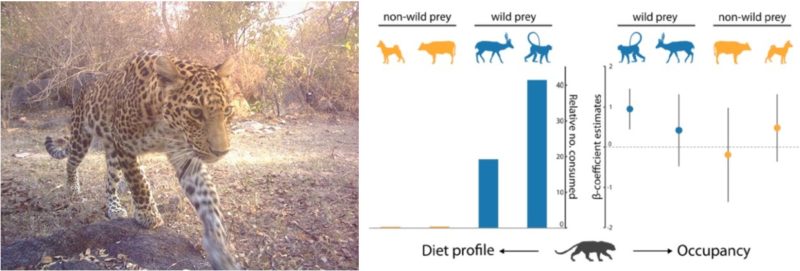Congratulations to WEC PhD candidate Mahi Puri and her colleagues Arjun Srivathsa, Krithi Karanth, Imran Patel and N. Samba Kumar for their new publication in Ecological Indicators: The balancing act: maintaining leopard-wild prey equilibrium could offer economic benefits to people in a shared forest landscape of central India. This article shows that abundance of wild prey best predicts leopard occurrence, and that they rely very little on domestic livestock as prey items in their diet (~3%). Their results argue for the value of maintaining adequate forest cover in a human-modified landscapes in order to lessen conflict between humans and leopards. Simulations show that the risk of livestock depredation by leopards increases with reduced native prey populations. Further reduced leopard populations are likely to lead to increased crop loss to farmers due to increased number of wild herbivores that may feed in agricultural fields. This study is an example of how interdisciplinary approaches to understanding ecological processes and economic benefits in human-modified landscapes can lead to better outcomes for conservation and farmers. For a link to the article click here.
By loiselleb@gmail.com|
2019-11-19T20:34:00+00:00
November 19th, 2019|camera, ecology, graduate students, India, interdisciplinary|0 Comments












Recent Comments